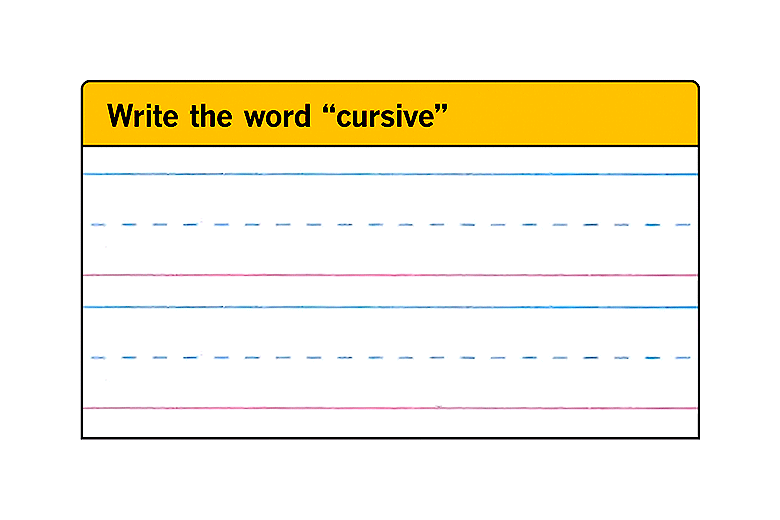Stenos Can Still Write Their Own Tickets to Success : Careers: The typical secretary no longer needs shorthand. But for a high-paying post, stenography is an idea whose time is still here.
- Share via
NEW YORK — Like a heroine in a 1940s movie, Anita Cottrell uses shorthand to get ahead.
A legal secretary in Syracuse, N.Y., she shuns the computer when it comes to logging phone conversations. “People call lawyers when they’re very upset, and they just go on and on in an emotional state,” said Cottrell, who uses Gregg shorthand to take down speech at 100 words a minute or faster.
Cottrell also uses this “secret language” to write notes to herself. “It’s wonderful to be able to write things down and know my boss can’t read it,” she said.
About half of secretaries today use shorthand in their jobs, according to a secretarial survey by Professional Secretaries International, a Kansas City-based trade association that has 40,000 members. Five years ago, that figure was 90%.
An increasing number of managers and professionals compose their own letters on word processors, but many top lawyers and bankers continue to dictate to secretaries with a steno pad.
“It’s kind of a status symbol for the big shooters,” said Noreen Donovan, a personnel consultant at a Midtown secretarial agency. “They want to turn around and brag to their buddies: ‘My girl takes 120.’ ”
Precision is important to lawyers, said Amy Soricelli, director of placement at the Katharine Gibbs School here. “A lot of lawyers clock in at 100 words a minute and expect their secretaries to keep up with every word they say and not paraphrase,” she said.
Shorthand fluency is more than just a status symbol for secretaries. It allows them to apply for the most prestigious executive secretary jobs, which offer $35,000 to $70,000. Four-fifths of executive secretary openings require shorthand, Donovan estimates.
“If I have an applicant who is wonderful and I am going to send her to a $50,000 job and she has fast longhand or formal speed writing, I would urge her to brush up her Gregg,” Donovan said. “It only makes her more marketable.”
Increasingly, employers consider shorthand a plus rather than an essential, however. Dale Marshall, operations manager at the American Clothing and Textile Union, says he likes to dictate short notes, though he turns to his computer for complex documents. “If a person has WordPerfect, fast typing, good communications skills, they don’t have to have it,” he said. “We can use a micro-cassette.”
A good secretary who doesn’t know shorthand could still have gotten the job he recently advertised and could have used a micro-cassette recorder to take dictation, he said.
Shorthand has become nearly extinct in the forum for which it was designed, public debates and court proceedings. George Bernard Shaw wrote his plays in shorthand. Isaac Pitman, who invented the British shorthand system named for him, used to capture Parliamentary debates and sermons in what could nearly be considered an athletic feat.
Robert Gregg invented the most widely used American shorthand in 1888. His system reduces each letter to one stroke of the pen, then links the strokes into more complicated curls representing words and phrases. Spelling is simplified to further compress the writing: easy is e-s-e, gentlemen is j-m.
Most court reporters today use stenotype keyboards, and some courts have even gone to tape recording. The last reporter to use a pen in the New York State Supreme Court retired in 1988, at age 82.
But in private meetings, shorthand still proves its mettle. “When they’re working for the CEO, they’ve got to be able to sit in a board meeting and take the minutes with 15 people shouting at once,” Soricelli explained.
Gibbs was among the business schools that junked most of its classes in shorthand when computers came along. Since 1983, the school’s standard offering has been Speedwriting, which uses the ordinary alphabet to write word abbreviations. One evening class in Gregg survives at Gibbs here, but it is never full, said Michael Rubin, dean of the New York school.
Nevertheless, all 375 students in the secretarial program at Murry Bergtraum High School near Wall Street learn shorthand, said Ada Colon, the program coordinator. Demand for her students is steady; they get internships at Chase Manhattan Bank and Apple Bank during the school year and $12-an-hour jobs after graduation.
However powerful the new technologies may appear, Colon says, “the personal computer doesn’t take the place of stenography.”
More to Read
Inside the business of entertainment
The Wide Shot brings you news, analysis and insights on everything from streaming wars to production — and what it all means for the future.
You may occasionally receive promotional content from the Los Angeles Times.










